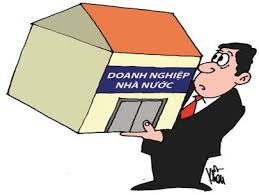|
How many state-owned
economic groups are there in
The number
of state-owned economic groups in

According to the 2005 Enterprise Law,
“economic group” is understood as a group of companies that do not have a
legal entity. The understanding is in line with international practice, said
Bui Van Dung, head of the Central Institute of Economic Management’s (CIEM)
Enterprise Reform Committee.
Dung said the Enterprise Law states
that a “economic group” means a collection of companies with a large
operating scale. This definition has led to two different interpretations.
Under Decree 39, an economic group is
one large group of companies, though the individual companies are not large.
Meanwhile, Decree 102 that guides the
implementation of the Enterprise Law stipulates that an “economic group” is a
cluster of big companies which include independent legal entities.
The Vietnamese Accounting Standard 25
says a “economic group” comprises a parent company and subsidiaries, thus
leading to the understanding that there are only two levels of businesses in
economic groups.
Dung said the definition of
“state-owned economic group” stipulated in different documents is
inconsistent. The question of how many economic groups exist remains
unanswered.
“As the definition of ‘economic
group’ has not been clarified, it is difficult to set up a mechanism to
monitor and assess the operation of ‘economic groups’ and protect involved
parties’ interests,” he noted.
Tran Tien Cuong, who is considered a
leading expert on state-owned enterprises, said that state-owned enterprise
reform has not made considerable progress because of the disagreement over
the term ‘economic group’ in the last 10 years.
A report showed that state-owned
economic groups have been growing quickly, which accounts for the
overwhelming proportion of the largest corporations in
The state-owned economic groups have
held dominant positions in their business fields – the most important fields
of the national economy. They make up 99 percent of fertilizer output, 97
percent of coal mining, and 94 percent of electricity and gas output. They
hold 91 percent of the media and 88 percent of the insurance market.
Dinh Quang Ty, a member of the
Central Theory Council, pointed out that many problems in the national
economy had occurred in the last 10 years, and most of them were related to
state-owned economic groups.
“People say problems exist in all
state-owned economic groups,” he said. “Therefore, it is necessary to find
out what the biggest problems are, and how they bring disadvantages to the
national economy.”
TBKTSG
|
Chủ Nhật, 15 tháng 2, 2015
Đăng ký:
Đăng Nhận xét (Atom)
Không có nhận xét nào:
Đăng nhận xét